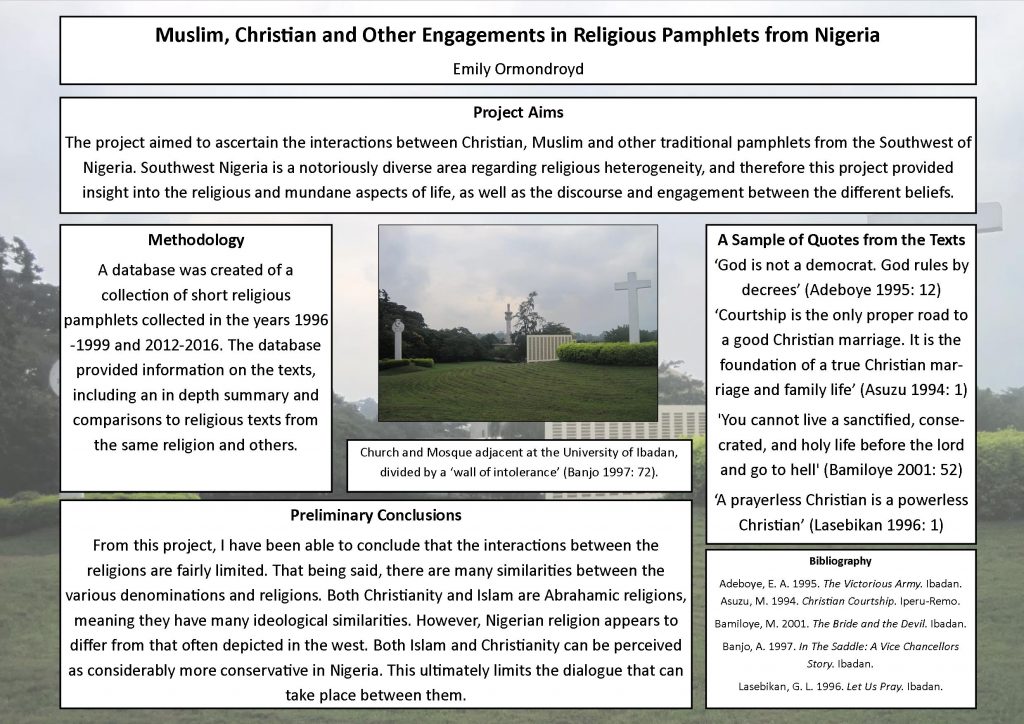This summer I spent five invaluable weeks working with Prof Karin Barber and Dr Insa Nolte on a research project titled ‘Muslim, Christian and Other Engagements in Religious Pamphlets from Nigeria’, reading a bevy of pamphlets and inputting relevant material into a detailed database. Nigeria is a secular state, that while has no state religion, can be perceived as a multi-religious country. The nation is fairly evenly divided between Christianity and Islam, with a small percentage adhering to local traditional religions. This religious divide has also created a cultural divide within Nigeria, as I discovered when reading the pamphlets.
The pamphlets discussed a wide range of religious, social, and cultural aspects of daily life; ranging from the mundane such as married life, to more controversial opinions on sex outside of marriage and adultery. These offered a diverse outlook on the topics, with many being far more conservative than that which we are used to in the western world. I found the pamphlets incredibly enthralling as they captured elements of a culture with which I was not properly acquainted (here is one of the pamphlets that I read converted into a film). I would highly recommend to those considering participating in the undergraduate research scholarship scheme to branch out and partake in a project that is outside your previous studies as I did, as this gave me an opportunity to study something I found enticing but would not be able to study as part of my degree.
I developed many transferable skills from this opportunity that will not only aid me in my final year, but in any postgraduate studies I choose to undertake. From this project I have learned how to create a large database, and developed an understanding of what material is considered valuable within it. For each pamphlet, I had to create a detailed synopsis of the content and create comparisons to religious texts. This has allowed me to develop my writing and note taking, in a way that will largely benefit my dissertation. I feel this project will be of great benefit in voluntary work in such places as a library or an archive as the skills required are very similar in nature.

To summarise, I found the UGRS to be an incredibly enriching experience and would greatly recommend to anyone considering postgraduate studies, or simply someone who would like to gain some useful skills to get ahead in their degree. While difficult at times, the project was a priceless experience that I believe has shaped the way I will study in my future endeavours, and has greatly prepared me for my final year.
Emily Ormondroyd, BA Ancient History
